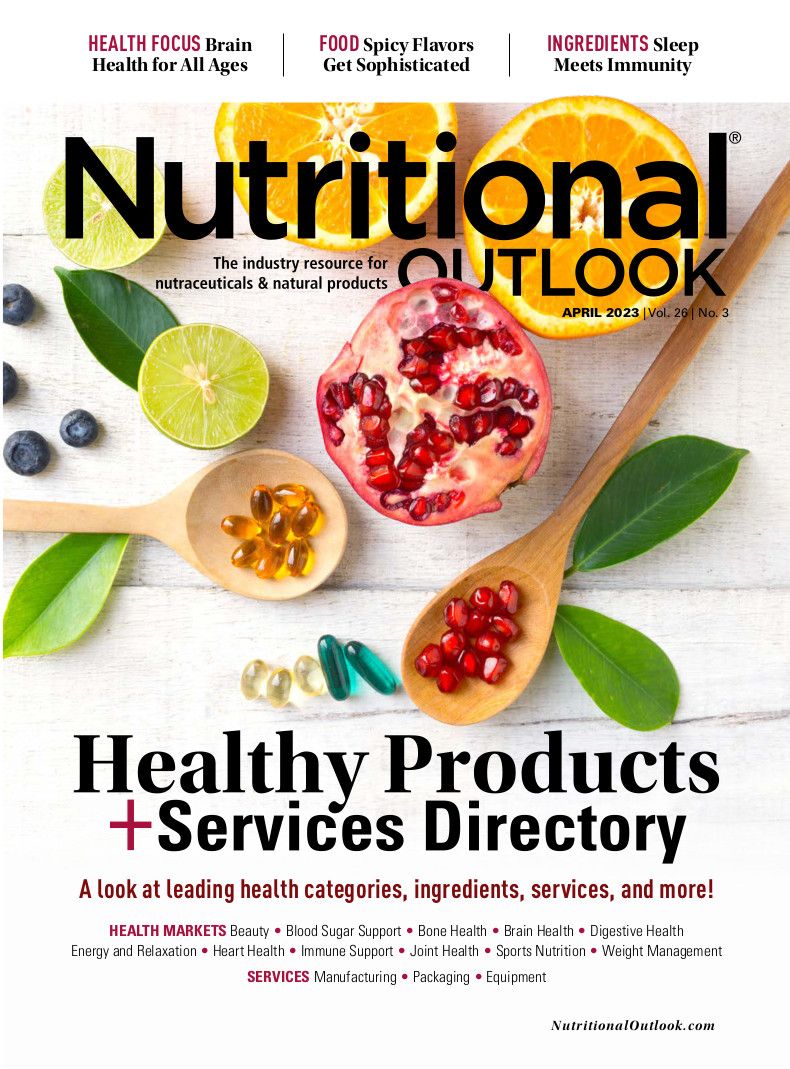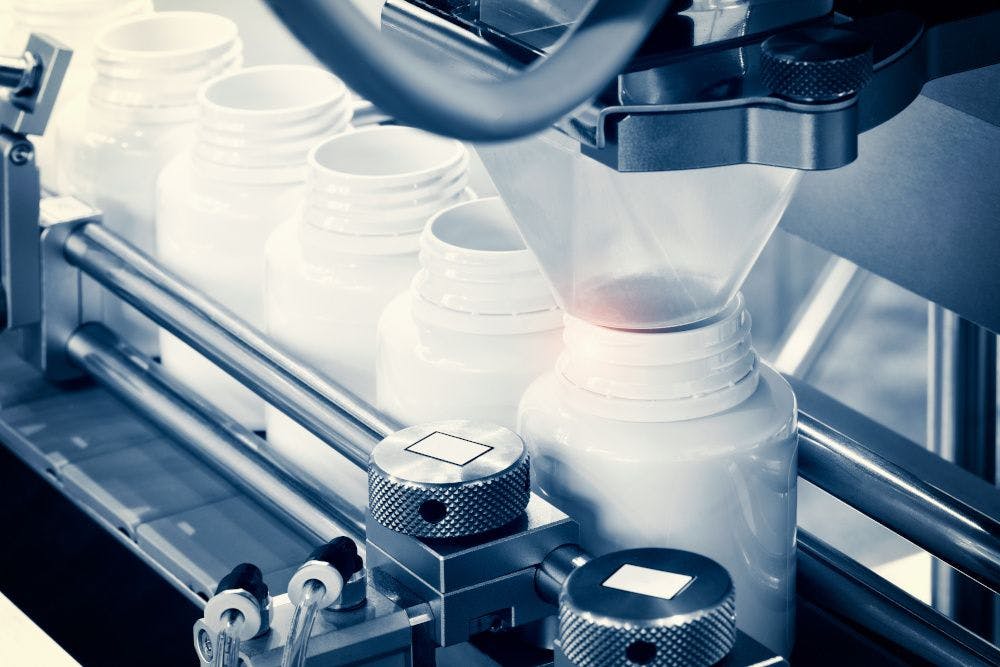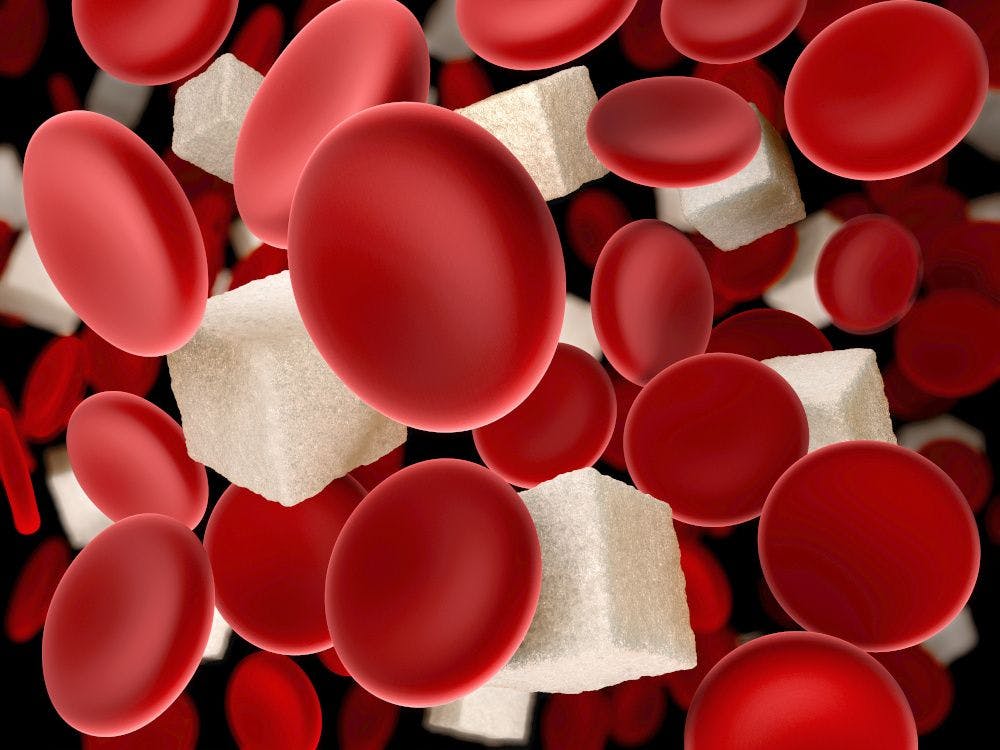Cognitive and mental health supplements cater to customers young and old
The audience for cognitive and mental health supplements is growing.
© Yodiyim / Stock.adobe.com

Consumers young and old worry about their brain health today. As a result, the brain health supplements market is seeing growing demand for products that address not only cognitive function during aging but also products that support mental health, stress, anxiety, and mood.
“The brain health segment has diversified and expanded in the last few years into a broader category of mental health, which includes memory and focus, mood and stress, and even sleep,” says Laurentia Guesman, business manager, food and supplement ingredients, at AIDP Inc. (City of Industry, CA), a supplier of brain health ingredients like Magtein magnesium L-threonate.
For older customers, cognitive function is a critical part of healthy aging. “Older consumers currently dominate the category of preventative supplements for brain health as fears of developing age-related cognitive decline, dementia, and other cognitive conditions are the primary factor driving this,” says Irfan Qureshi, vice president, product development and quality assurance, for wellness brand Healthy Directions.
Maria Stanieich, marketing manager, Kyowa Hakko USA (New York City), known for its Cognizin citicoline ingredient, adds, “There is an emerging concept of longevity and greater focus on quality of life. We have seen the conversation in this market evolve from ‘anti’ aging messaging to brands and products that embrace the aging process and help consumers continue to live fully and enjoy their hobbies. If your cognition and memory, for instance, are not performing optimally, you are likely not living life to the fullest. Consumers who prioritize their physical, mental, and social well-being are the consumers who tend to live the healthiest lives overall.”
Younger and middle-aged customers are also concerned about age-related cognitive function, but it’s more-immediate struggles that are drawing these generations to the brain supplements market today—namely, maintaining mental health in the face of peak levels of stress and anxiety. “Younger consumers are becoming more interested as people are increasingly facing challenges coming out of the pandemic that are aggravating cognitive health issues,” Qureshi explains.
Adds Guesman: “As [the brain health] segment broadens, we have seen older populations gravitate towards memory and focus, while the younger demographic gravitates towards products for mood and stress.” She cites findings of a recent supplement-user consumer survey by Ingredient Transparency Center that found the top three health concerns for U.S. adults aged 18-34 are 1) anxiety/stress (37%), 2) depression (32%), and 3) lack of energy (28%).
That’s not to say that these younger customers aren’t thinking about tomorrow. With more younger consumers thinking about mental health, they’re also becoming increasingly attuned to their cognitive function. As Qureshi points out, “Research shows a strong link between higher stress and anxiety levels and poor cognitive function, both in the short-term and long-term. This means that elderly customers as well as those who are significantly younger are increasingly likely to look for supplements that support cognitive health.”
Younger consumers are also reminded of how precious brain functioning is when they see headlines in the news about traumatic brain injuries in athletes, says Nathan Price, PhD, chief scientific officer for wellness brand Thorne. “Brain health continues to be talked about more and more outside of consumer circles that skew older.”
He points to topics like concussions, subconcussive trauma, and traumatic brain injuries. “You see a lot of athletes talking about the importance of brain health because subconcussive impacts—and, worst-case scenario, concussions—are a huge factor in many sports, and for both professional and non-professional athletes alike.” For this reason, in 2021 Thorne worked with Mayo Clinic to bring to market SynaQuell and SynaQuell+, which Price calls “the first multi-ingredient nutritional supplement formulated to support pre- and post-impact brain health” for people involved in contact sports or other high-impact activities. SynaQuell is also being studied in clinical trials.
Price adds: “Brain health is absolutely central to long-term health and wellness concerns, including not only dementia-related fears as we age but also the effects of impacts, through sports or abuse, on health throughout life.”
And just in general, he says, younger people want to perform better cognitively. “There is clearly a developing movement around brain health that is skewing younger as ambitious individuals are looking for ways to be as sharp and productive as they can. They are focusing on brain performance just like athletes focus on body performance.”
Says Qureshi: “As these younger consumers are more aware of age- and stress-related changes impacting their cognitive abilities, they are educating themselves on natural and nutritional solutions that are available to address these health concerns as well as prevent further deterioration.”
Commanding Ingredients
What types of ingredients will they find in natural products for brain health? The list is long. “There are a number of ingredients that are trending in this area and others that have been well-researched for helping with cognitive health and other mental concerns,” Qureshi notes.
Citicoline is one of them. “Citicoline is a choline source and a precursor for the neurotransmitter acetylcholine,” he says. “Studies indicate that citicoline supports several aspects of cognitive health through its ability to promote neuroplasticity, making the nervous system more agile and enhancing its functionality.”
Phosphatidylcholine, a phospholipid, has long been present in cognitive supplements, too, says Price. “Individuals who eat diets rich in this compound, found in eggs or in supplement form, are affected by Alzheimer’s disease three years later on average according to a published study,” he notes.
Omega-3 fatty acids like DHA and EPA are also key players. “DHA is important for maintaining healthy brain cell membranes as well as promoting balanced inflammatory responses in the brain,” Price explains. “Thus, DHA affects both cognitive function and learning. It also supports a healthy level of brain-derived neurotrophic factor (BDNF).”
Kimberly Kawa, a product expert at market researcher SPINS (Chicago), points to a wide range of brain-health ingredients for adults, based on SPINS Natural Channel and MULO (powered by IRi) data in the U.S. covering the 52 weeks ending January 29, 2023. “Cognitive health supplements mainly target mental clarity, mental focus, and memory strengthening through decreasing oxidative stress and targeting neuroregeneration. Notable cognitive health formulas contain one or several of the following functional ingredients: bacopa, betaine (trimethylglycine), choline, coffee fruit extract, fish oil omega-3s, Ginkgo biloba, gotu kola, huperzine A, lion’s mane mushroom, lutein, magnesium L-threonate, niacin, oat straw, phosphatidylserine, and reishi.”
Both Kawa and Price point to niacin in the form of nicotinamide riboside as a key upcomer. Nicotinamide riboside promotes the production of BDNF, which is “a protein produced in the body that promotes growth of brain and nerve cells, and that declines as we age,” Kawa says. Price says, “Nicotinamide riboside is converted to NAD+ in the body. NAD+ helps convert food into energy and protects cells from damage while also supporting learning, memory, and other cognitive functions.”
Kawa also gives a shout-out to magnesium. “Magnesium L-threonate is worth an extra mention. This is magnesium chelated with threonic acid, a vitamin C metabolite, used in Alzheimer’s research, with noted benefits of reducing brain inflammation and increasing brain plasticity.”
Price also mentions the role of CoQ10 and branched-chain amino acids. “Coenzyme Q10 reduces oxidative stress and enhances mitochondrial functioning in the brain. Branched-chain amino acids are important precursors to the brain’s neurotransmitters dopamine, serotonin, and norepinephrine.”
He also highlights ketones like beta-hydroxybutyrate (BHB), which he says “supply 70% of the brain’s energy needs—and do so more efficiently than glucose. BHB is neuroprotective because it increases the production of new mitochondria, which in turn increases ATP (energy production) in the brain’s nerve cells. BHB also enhances blood flow in the brain, which becomes increasingly important to staving off loss of cognition as we age.”
Qureshi also points to growing research showing the benefits of carotenoids like lutein and zeaxanthin, well known for eye health, for cognitive function.
Herbal ingredients also play richly in the cognitive space. “There are several botanicals with neuroprotective and cognition-enhancing effects,” Qureshi says. “These include several that come from the Ayurvedic tradition, such as turmeric and its constituent curcumin, bacopa, and ashwagandha. Ashwagandha has adaptogenic effects and can support mood, mental health, and sleep in addition to promoting aspects of cognitive health and executive function. American ginseng is another adaptogenic herb that supports executive functioning and also provides support for mood and mental health.”
Another plant ingredient Kawa highlights is coffee fruit extract. “Coffee fruit extract is found in several formulas in both regular retail and physician lines and is also touted to support BDNF production. In one successful formula in brick-and-mortar, with multiple brain-support mentions (memory, focus, concentration, learning, and accuracy), coffee fruit extract is paired with phosphatidylserine.” She wonders: “Would this type of marketing appeal to young adults and seniors even though it is not overtly marketed to a specific life stage?”
Kawa points to a number of ingredients she sees playing in mood support for adults. These “mainly focus on supporting neurotransmitter production and the gut-brain connection,” she says. “Calming neurotransmitter-support ingredients and stress-reduction marketing is prominent in this segment, with key functional ingredients including ashwagandha, GABA, magnesium, vitamin D, L-theanine, CBD, and probiotics.”
Interest in the cognitive benefits of probiotics is growing, Qureshi agrees. “Research on probiotics is an emerging area of science for cognitive and mental support,” he notes. “Probiotics act through the gut-brain axis and can have direct effects on the gut that lead to benefits for brain health. The GI tract is rich in neurotransmitters like serotonin and others, and probiotics can influence neurotransmitter levels in the gut, leading to impacts on cognition and mood.”
And don’t forget the nutritional benefits of some of these brain health ingredients for the youngest population of all. “Cognitive health supplements for younger consumers mainly target brain building and concentration,” Kawa says. “Noticeable primary ingredients in popular supplement formulas include choline, DHA omega-3, eleuthero (Siberian ginseng), and ginger. Within the children’s mood-support space, we’re looking mainly at calming formulas containing magnesium, GABA, or L-theanine. Also seeing success is formulas that support the microbiome and the gut-brain connection with dual marketing for calm mood, positive mood, or focus, paired with detoxing microbes tied to cognitive issues. Primary ingredients in these formulas include black walnut, reishi, and probiotics.”
She concludes: “Cell membrane protection, neurotransmitter production, and microbiome support tie certain ingredients for cognitive benefits across multiple life stages.”
The Future
There’s incredible promise for the brain supplements market given growing focus on healthy aging and mental health. “Most predictions are that the market for preventative supplements in the brain health space is poised to see significant growth over the next decade,” Qureshi says. “Similar to several other categories of supplements designed to prevent adverse health outcomes, brain health is top of mind for an increasing number of consumers.”
To succeed with consumers, supplement brands will have to do a few things.
First and foremost, they should rely on well-researched and substantiated ingredients with proven safety and efficacy preferably shown in published, double-blind, placebo-controlled human studies, those interviewed here say. “There will continue to be demand for scientifically proven and clinically safe ingredients to attract and build trust as consumers are looking to ensure they are getting the necessary ingredients to fortify and manage their health,” Kyowa Hakko’s Stanieich says. “Studies that contribute to the growing body of evidence that demonstrates the clear value of cognitive function will continue to attract a consumer.”
Secondly, brain health brands today are addressing a wide range of consumer concerns related to cognition. This includes related health areas. “There are a few important elements that are keys to success in today’s brain health supplements market,” Qureshi says. “In order to resonate with today’s cognitive health consumer, supplements need to go beyond just offering support for memory, focus, attention, and other executive functions. The products also need to address related issues consumers are facing today, including stress, anxiety, and sleep challenges. Consumers are increasingly aware that these issues are key contributors to cognitive decline and are looking for supplements that support these important health factors in addition to supporting traditional cognitive health measures. To connect with younger, highly educated consumers in the market, addressing these factors is a must.”
Alternative delivery forms will also play a key role in expanding the audience. Says Qureshi, “In my experience, elderly consumers still gravitate to the traditional pill delivery forms that they are used to; however, the emerging younger demographic that is interested in preventative brain health solutions is gravitating towards alternative delivery forms such as gummies and beverages, in addition to standard pill-based products.”
What these customer want is convenience. “If products can be dosed only once or twice daily and can be taken on-the-go, they will tend to win out in the marketplace,” Qureshi says. Products like these will have staying power as long as they are effective and substantiated.
The point is that today’s brain health audience is expanding, and companies need to be sure they are meeting the needs of a widening array of supplement users. “What we typically think of as target demographics and different functional reasons for brain health may be shifting as healthy aging is top of mind even for the younger consumer, not only the aging population,” says Stanieich. “This consumer is incorporating brain health into an everyday lifestyle to sustain and enhance focus, attention, and memory.” She adds: “Healthy-aging products are not just for older populations.”
The long-term effects of brain health supplementation might not be felt right away, but other more experiential benefits may be felt quicker and help convince these customers that the products work. So will clinical research backing ingredients and products. Says Price: “Ideally, you want something that not only is useful in the long run but that also provides a cognitive boost in the short term, so benefits are achieved throughout the product’s use. You also want to be able to achieve success on each facet that drives brain health, including energy, cognition, focus, and low inflammation.”
“People generally know and understand that maintaining, and even enhancing, their brain health is critical,” he continues. “The hard part, of course, is to be convincing and credible that a particular product formula will actually make a real difference in their lives. Thus, the key really is to demonstrate real effectiveness and to make enough of a positive impact in a person’s life that they will recommend the product to their friends.”

Polyphenols: The next generation of prebiotics is ready for liftoff
April 21st 2025Explore the prebiotic health benefits of polyphenols and the positive impact they may have on digestive and immune health. Polyphenols, such as those found in European black elderberry, may be an ideal solution for manufacturers trying to break into the digestive health space.

























